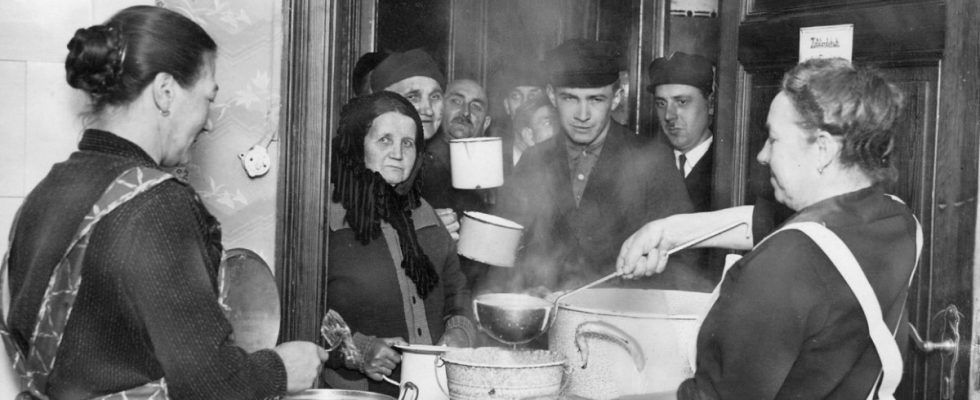What did our ancestors cook centuries ago and what did their food taste like? Questions you would like to have an answer to. There are such things, you just need to browse through old writings and kitchen books, which are stored in abundance in the archives. A valuable example is the old Kuchl book from the Benedictine Abbey of Seeon in the Bavarian Main State Archives. The entries begin on the first Sunday of Lent in 1531. “We have before us the detailed menu of a monastery throughout the year,” says Rüdiger Bachmann, the head of the main state archives.
The Kuchlbuch shows that the Seeon monks were often served cereal porridge and soups. Everything that grew in the monastery garden and what was produced in the monastery was used, such as fruit, vegetables, eggs and cheese. Pears, apples and grapes were served as puree. Because Seeoner See was rich in fish, these were also often served. During Lent before Easter and during Advent, fish and eggs were only served on Sundays. Meat was rarely served. On special feast days there was poultry, with each Benedictine being entitled to “half a hen”. Roasts, potatoes and tomatoes were still unknown in Bavaria in the 16th century.
Bachmann refers to another interesting source from 1492. In that year, according to a record in the St. Nikola monastery in Passau, pretzels were already served for snacks. This is one of the earliest written records of this iconic Bavarian pastry.
These and many other writings can be seen as part of the nationwide Archive Day, which takes place from March 1st to 3rd under the motto “Food and Drink”. On Saturday, visitors will, among other things, gain insights into the work of the Main State Archives as well as the Munich, Amberg and Landshut State Archives. In Würzburg, the State Archives, City Archives, University Archives, Archives and Library of the Diocese of Würzburg as well as the Historical Archives of the Würzburg Supply and Transport GmbH are organizing “Tasteful History(s)” in the Würzburg Residence this Friday.
Can beer be political?
Among other things, Archive Day is about the question: Can beer be political? An answer can be found, for example, in the Bamberg State Archives, which only takes part in the archive day virtually via a blog. There you learn that there was a Bamberg Purity Law 27 years before the Bavarian Purity Law of 1516, which is contained in a beer brewing oath from 1489 and hardly differs in content from the Bavarian Purity Law. Water, hops and barley – the Bavarian dukes decided in 1516 that no more ingredients should be used.
Document about the Franconian purity law for beer from 1489, which is older than the Bavarian one from 1516.
(Photo: private)
“But there are even older purity laws,” says Johannes Haslauer, the head of the Bamberg State Archives. We only know about the Bamberg Purity Law of 1489 thanks to a tax ordinance. However, Bamberg does not deserve a unique selling point. Cities like Landshut (1409), Regensburg (1469) and Munich (1487) had already designated barley, hops and water as the exclusive ingredients for beer.
The often wild experimentation with the ingredients sometimes produced “nasty and nasty beers” that “bring illness and days of pain” (Landshut 1409). At that time, there were disputes between the Bamberg Prince-Bishop and the neighboring imperial knightly families, particularly over the brewing and drinking rights. There were real “beer wars,” says Haslauer. The nobility insisted on their independent brewing and drinking rights, but the Bamberg episcopal officials wanted to enforce the beer monopoly of the official cities. According to a council protocol from 1730, notables and citizens from Marktschorgast invaded Wasserknoden and took the beer from the local aristocratic brewery with them. But they didn’t throw it away, but drank it themselves at home, as Haslauer says.
In the Landshut State Archives, a tavern regulations from Lower Bavaria from 1853 are presented. “You feel like you’ve been transported to an English pub,” says Thomas Paringer, the head of the Landshut State Archives. There were clear curfew regulations at the time, and the innkeeper rang a bell to announce that he would now close. Above all, it was important to prevent fights. And the servants were only allowed to write up to a limit to protect them from themselves.
Information about the offers in Bavaria on the homepage of the Bavarian State Archives: https://www.gda.bayern.de.
Further information on the page https://www.tagderarchive.de.
Documents and stories on the topic of “food and drink” can be found on the digital network at the so-called BlogSlam, which runs until March 9th (https://archivebay.hypotheses.org).

